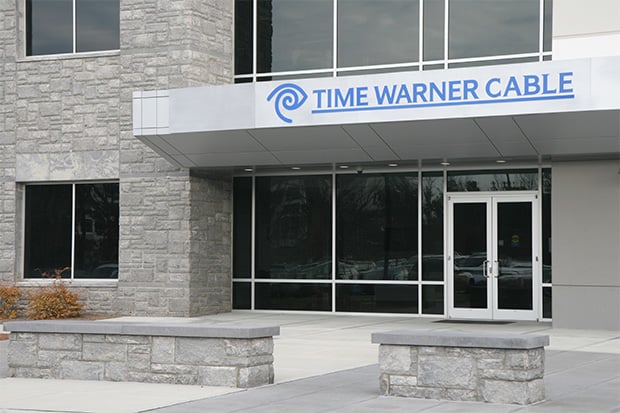Federal Regulators Approve Charter's Time Warner Cable Purchase, Forbid Unpopular Bandwidth Caps
It might be just a tad early for Charter Communications to pop the champagne, but it can certainly have an intern fetch the bubbly in preparation of a celebration. The U.S. Department of Justice laid out settlement terms of an antitrust suit that would allow Charter to forge ahead with its proposed acquisitions of Time Warner Cable and Bright House Networks.
The Department of Justice attached several conditions to its settlement, the biggest being that Charter would not be allowed to enter into or enforce agreements that would make it more difficult for online video services like Netflix and Hulu to purchase video content from programmers. It's a tactic the agency feared Charter would be in a position to use in order to favor its own services.

"Online video distributors offer consumers greater choices for video services," said Principal Deputy Assistant Attorney General Renata B. Hesse, head of the Antitrust Division. "This merger would have threatened competition by increasing the merged company’s leverage to demand that programmers limit their licensing to these online providers."
That isn't the only condition Charter must follow. The Federal Communications Commission is getting ready to circulate an order approving the deals contingent on Charter agreeing to expand broadband Internet to an additional 2 million customers within 5 years. Charter also wouldn't be allowed to set data caps or charge interconnection fees, both of which stifle innovation and hurt streaming providers.
"The cumulative impact of these conditions will be to provide additional protection for new forms of video programming services offered over the Internet. Thus, we continue our close working relationship with the Department of Justice on this review," Wheeler said in a statement.
Data caps are the bane of customers and online services alike. Comcast has been trialing data caps of 300GB in certain parts of the country and that has led to a meteoric rise in customer complaints to the FCC. Charter doesn't currently impose data caps, nor will it for at least seven years, which is how long the FCC's conditions are valid.
The Department of Justice attached several conditions to its settlement, the biggest being that Charter would not be allowed to enter into or enforce agreements that would make it more difficult for online video services like Netflix and Hulu to purchase video content from programmers. It's a tactic the agency feared Charter would be in a position to use in order to favor its own services.

"Online video distributors offer consumers greater choices for video services," said Principal Deputy Assistant Attorney General Renata B. Hesse, head of the Antitrust Division. "This merger would have threatened competition by increasing the merged company’s leverage to demand that programmers limit their licensing to these online providers."
That isn't the only condition Charter must follow. The Federal Communications Commission is getting ready to circulate an order approving the deals contingent on Charter agreeing to expand broadband Internet to an additional 2 million customers within 5 years. Charter also wouldn't be allowed to set data caps or charge interconnection fees, both of which stifle innovation and hurt streaming providers.
"The cumulative impact of these conditions will be to provide additional protection for new forms of video programming services offered over the Internet. Thus, we continue our close working relationship with the Department of Justice on this review," Wheeler said in a statement.
Data caps are the bane of customers and online services alike. Comcast has been trialing data caps of 300GB in certain parts of the country and that has led to a meteoric rise in customer complaints to the FCC. Charter doesn't currently impose data caps, nor will it for at least seven years, which is how long the FCC's conditions are valid.

